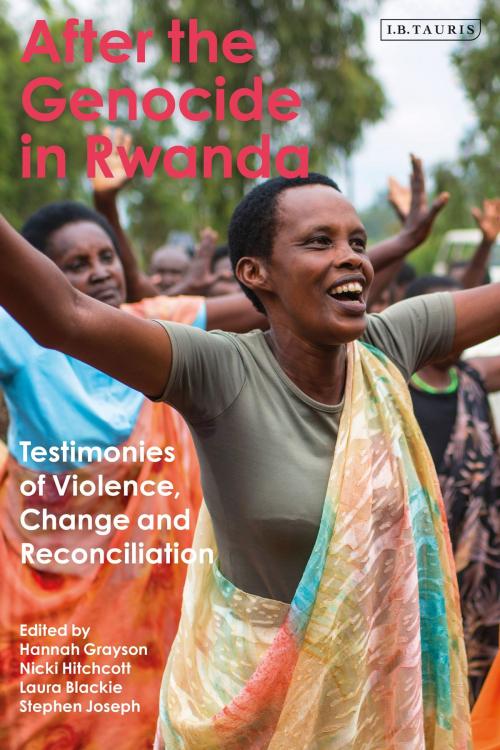After the Genocide in Rwanda
Testimonies of Violence, Change and Reconciliation
Nonfiction, History, Africa, Reference & Language, Reference, Health & Well Being, Psychology| Author: | ISBN: | 9781786726636 | |
| Publisher: | Bloomsbury Publishing | Publication: | June 27, 2019 |
| Imprint: | I.B. Tauris | Language: | English |
| Author: | |
| ISBN: | 9781786726636 |
| Publisher: | Bloomsbury Publishing |
| Publication: | June 27, 2019 |
| Imprint: | I.B. Tauris |
| Language: | English |
Since the Genocide against the Tutsi, when up to one million Rwandan people were brutally killed, Rwanda has undergone a remarkable period of reconstruction. Driven by a governmental programme of unity and reconciliation, the last 25 years have seen significant changes at national, community, and individual levels. This book gathers previously unpublished testimonies from individuals who lived through the genocide. These are the voices of those who experienced one of the most horrific events of the 20th Century. Yet, their stories do not simply paint a picture of lives left destroyed and damaged; they also demonstrate healing relationships, personal growth, forgiveness and reconciliation. Through the lens of positive psychology, the book presents a range of perspectives on what happened in Rwanda in 1994, and shows how people have been changed by their experience of genocide.
Since the Genocide against the Tutsi, when up to one million Rwandan people were brutally killed, Rwanda has undergone a remarkable period of reconstruction. Driven by a governmental programme of unity and reconciliation, the last 25 years have seen significant changes at national, community, and individual levels. This book gathers previously unpublished testimonies from individuals who lived through the genocide. These are the voices of those who experienced one of the most horrific events of the 20th Century. Yet, their stories do not simply paint a picture of lives left destroyed and damaged; they also demonstrate healing relationships, personal growth, forgiveness and reconciliation. Through the lens of positive psychology, the book presents a range of perspectives on what happened in Rwanda in 1994, and shows how people have been changed by their experience of genocide.















